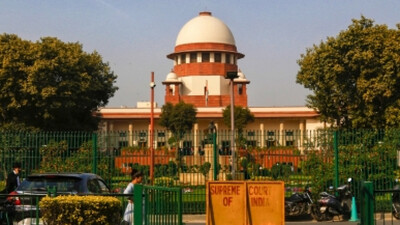Recommended Stories
The Indian delegation led by Home Secretary R K Singh and the Pakistani team led by Interior Secretary Khwaja Siddique Akbar gathered at a hotel in the heart of Islamabad for the talks. The last round of talks between the Home and Interior Secretaries was held in New Delhi in March last year.
Ahead of the talks, Indian officials said the two sides had given the finishing touches to a new relaxed visa regime that will for the first time include tourist visas, visas on arrival for senior citizens and children and year-long multiple-entry visas for businessmen.
The two secretaries are expected to ink the pack by the conclusion of the talks tomorrow, official sources said. However, some reports in the Pakistani media claimed that the visa agreement is unlikely to be signed as the Pakistani cabinet had not approved it at its last meeting yesterday. The reports said Interior Minister Rehman Malik had not brought the agreement before the cabinet for approval.
An unnamed Interior Ministry official was quoted as saying by The Nation newspaper that the authorities had decided to delay the signing of the new visa agreement till the next meeting of the Home and Interior Secretaries. The two countries have been working on the draft of the new visa agreement for over a year.
The inclusion of National Investigation Agency chief S C Sinha and other key officials who are involved in the probe of the 2008 Mumbai attacks in the Indian delegation is a clear indication of New Delhi`s intention to push for the prosecution of the perpetrators of the terrorist assault on India`s financial hub.
Seven Pakistani nationals, including LeT operations commander Zakiur Rehman Lakhvi, have been indicted for planning, financing and facilitating the deadly attacks that killed 166 people in November 2008. However, their trial in an anti-terrorism court in Rawalpindi has stalled for over a year due to various technical reasons.
Despite the visit of a Pakistani judicial delegation to Mumbai in March to gather evidence and record the statements of key Indian officials, no headway has been made in the trial in recent weeks. The Indian side will also reiterate the demand for action against LeT founder Hafiz Mohammad Saeed, for whom the US recently offered a 10 million-dollar bounty.
The Indian side will also discuss other issues related to terrorism, drug trafficking, the presence in Pakistan of fugitives from Indian law like Indian Mujahideen leaders and mob boss Dawood Ibrahim, networks involved in circulating fake Indian currency and humanitarian issues like the release of prisoners held in jails of both countries.
During President Asif Ali Zardari`s visit to India on April 8, Prime Minister Manmohan Singh had stressed the need for Pakistan to take firm action to curb terrorism to enable India to move forward with bilateral ties. Singh also asked Pakistan to bring the perpetrators of the Mumbai attacks to justice.
The Pakistani side is expected to ask India to take action against those responsible for the bombing of the Samjhauta Express train, which killed nearly 70 people, including 42 Pakistanis.












